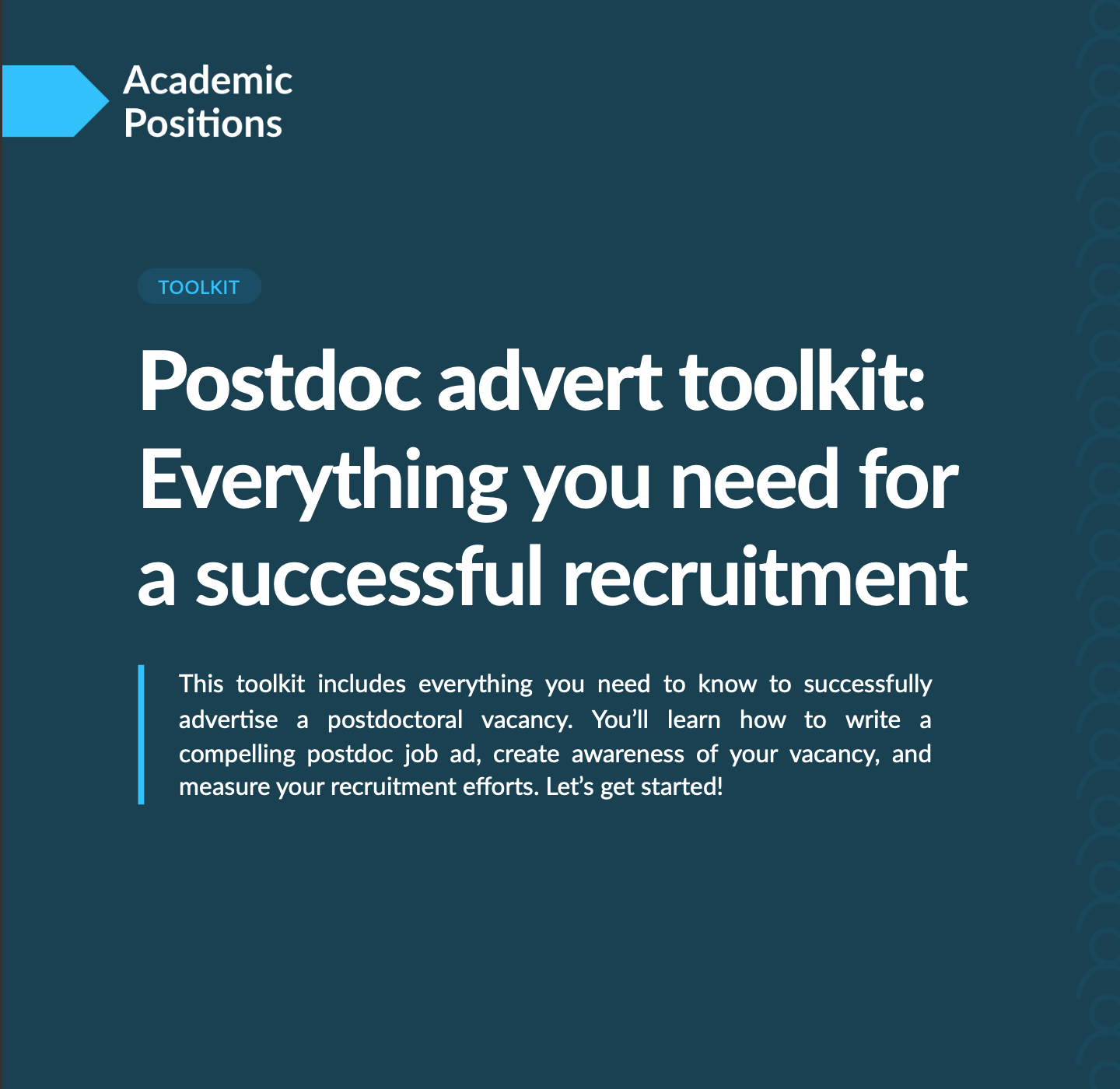There is no shortage of candidates looking for postdoc positions and of professors looking for postdocs. And yet, it is somewhat difficult for the right candidate to find the right university and vice versa. Part of the reason for this discrepancy is that many professors still rely too heavily on their network instead of adopting more modern recruitment marketing strategies.
Here are four reasons why you shouldn’t just rely on your network to find postdocs.
Your reach will be small when you rely on your network
The single most important factor when trying to fill open positions is ensuring candidates know about them. When you rely on word of mouth marketing, you are likely missing out on excellent candidates, simply because they aren’t aware of the vacancy. This can happen for a number of reasons.
First, you might not know which of your connections are open to opportunities. Therefore, you might neglect to pass an advert on to someone who would be interested in the position and would apply if they came across the ad themselves.
Second, you simply might not have a large network yet. For example, you might be a new PI or new to your field of research. Because your network is limited, your reach for potential job applicants will be limited.
Lastly, you are still tied to other people driving your marketing strategy. Others simply might not share opportunities.
In an article about word of mouth marketing for business, Nathan Vogele writes, “… you can only serve people who know and hear from people who have already discovered your business…if you are relying on this alone, you limit the amount of business you are doing.” This is just as true for universities and professors. Word of mouth relies solely on the networks of researchers and academics. These networks can vary in size and vastly limit your potential reach.
You aren’t in control of word of mouth advertising
When you rely on your network to help you find potential employees, you are relying on other people to do the important work of defining who you are and articulating your needs. This is a passive approach to recruitment and may work in some cases, but may not work in others.
In some cases, people in your network will not actively promote your position or your work to their colleagues. Researchers, professors, postdocs, and other university employees are incredibly busy. When you’re working grueling hours, word of mouth marketing is not generally a priority.
In other cases, even if people are talking about your university and your research, they may not have all their facts correct. Carrie Dagenhard, a content strategist in the private sector writes, “Word-of-mouth marketing can trigger a release of inaccurate information that’s misleading at best and reputation-damaging at worst.”
When you rely on word of mouth marketing, you are not in control of your own narrative. While this could prove to offer a genuine and unbiased look at your research group, it could backfire.
It will be hard to reach diverse applicants
It’s natural to form networks with people who are demographically similar to us. We all tend to gravitate towards those who are like us. However, this inherently limits your network and neglects all the rich benefits of a more diverse network.
Rahdiah Barnes, President of the National Association for Multi-Ethnicity in Communications (NAMIC) in New York notes, “One of the most important things you should do for yourself personally and professionally is to have a diverse network, a robust network that’s full of different people with various backgrounds at varying levels with assorted life and career experiences.”
If you want to get applications from underrepresented groups, you need to be sure those people are in your network. Too often, they are not.
Additionally, members of underrepresented groups in academia often don’t have as wide of networks. This means your word of mouth marketing will not reach a diverse group of applicants.
This is not only true for underrepresented groups but also international candidates. Our networks tend to be local and geographically limited. This means the vast pool of talented international candidates could miss out on your open positions.
It could damage your relationships
Even if your word of mouth marketing helps you fill an open position, there is always the risk that the placement might not work out. If the person referred doesn’t live up to expectations, you could potentially damage important relationships within your network.
Word of mouth marketing can be effective when used in conjunction with other marketing strategies. But relying on others to spread the word about your university will not only limit your talent pool, it will deny you potentially exceptional candidates who would be a great fit, if only they knew about you and your work.
Download

Download your free postdoc advert toolkit
Get your free postdoc advert toolkit with our top tips for writing and sharing a postdoc advert that will make candidates excited to apply.
Download







